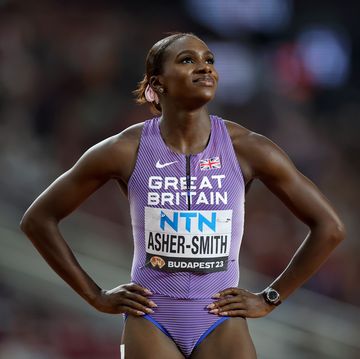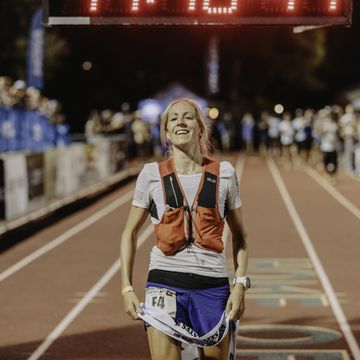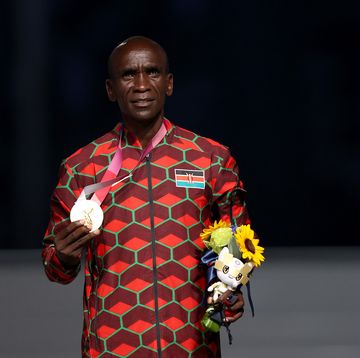Personality tests tend to be the domain of workplace strategy sessions or sheer entertainment — for instance, which Hogwarts house you'd be sorted into, or which Friends character you most emulate — but new research in the journal PLOS ONE suggests personality types could relate to running style, too.
Researchers asked 80 runners to take a standard psychology test called the Meyers-Briggs Type Indicator (MBTI), which sorts respondents based on four categories: thinking-feeling, sensing-intuition, judging-perceiving, and extraversion-introversion.
The idea is that in each category, an individual will have traits that lean more heavily in one direction than the other, and this propensity drives a breadth of behaviour, including communication style, decision making, information processing, among other traits. With these categories, someone will be put into one of 16 distinct MBTI types.
Along with the test, the participants ran on a 50-meter track three separate times, and researchers assessed variables such as how much effort they seemed to be making and whether their running style was perceived to be more grounded or had more bounce.
Researchers found that those classified as "sensing" had a more grounded running style while the "intuition" runners exhibited a more dynamic and elastic style. (Sensing individuals are those who pay attention to physical realities and prefer practical and specific facts. Intuition individuals prefer abstract concepts and theories rather than the practical.)
Sensing runners also seemed to optimise running economy through more forward progression, with a longer contact time and shuffling stride, while intuition runners showed more vertical force as they ran. (The other personality traits, like thinking-feeling, judging-perceiving, or extraversion-introversion, didn’t show any statistical differences.)
'These results suggest that runners with sensing and intuition personality traits differ in their ability to use their lower limb structures as springs,' researchers wrote. 'This study underscores the intriguing interplay between personality traits of individuals and their preferred movement patterns.'
In terms of how to use this info for your running performance, the researchers don’t offer practical tips within the study, but one takeaway might be the importance of acknowledging how many different factors go into running form — which could help temper how much you compare the way you run to others, according to Dr Joshua Scott, primary care sports medicine physician at Cedars-Sinai Kerlan-Jobe Institute in Los Angeles, USA.
Although he wasn’t part of the recent study, Scott told Runner’s World that there’s value in focusing on individual factors when it comes to performance, even if you’re using tips from other runners to train more effectively.
'It’s easy to become demotivated if you feel like you’re making less progress than others in your running group, for example, but keep in mind that you have individual variables that can determine how you progress in your speed or intensity,' he says. “With that in mind, you can follow a much more tailored training program, and celebrate the progress you do make.'













